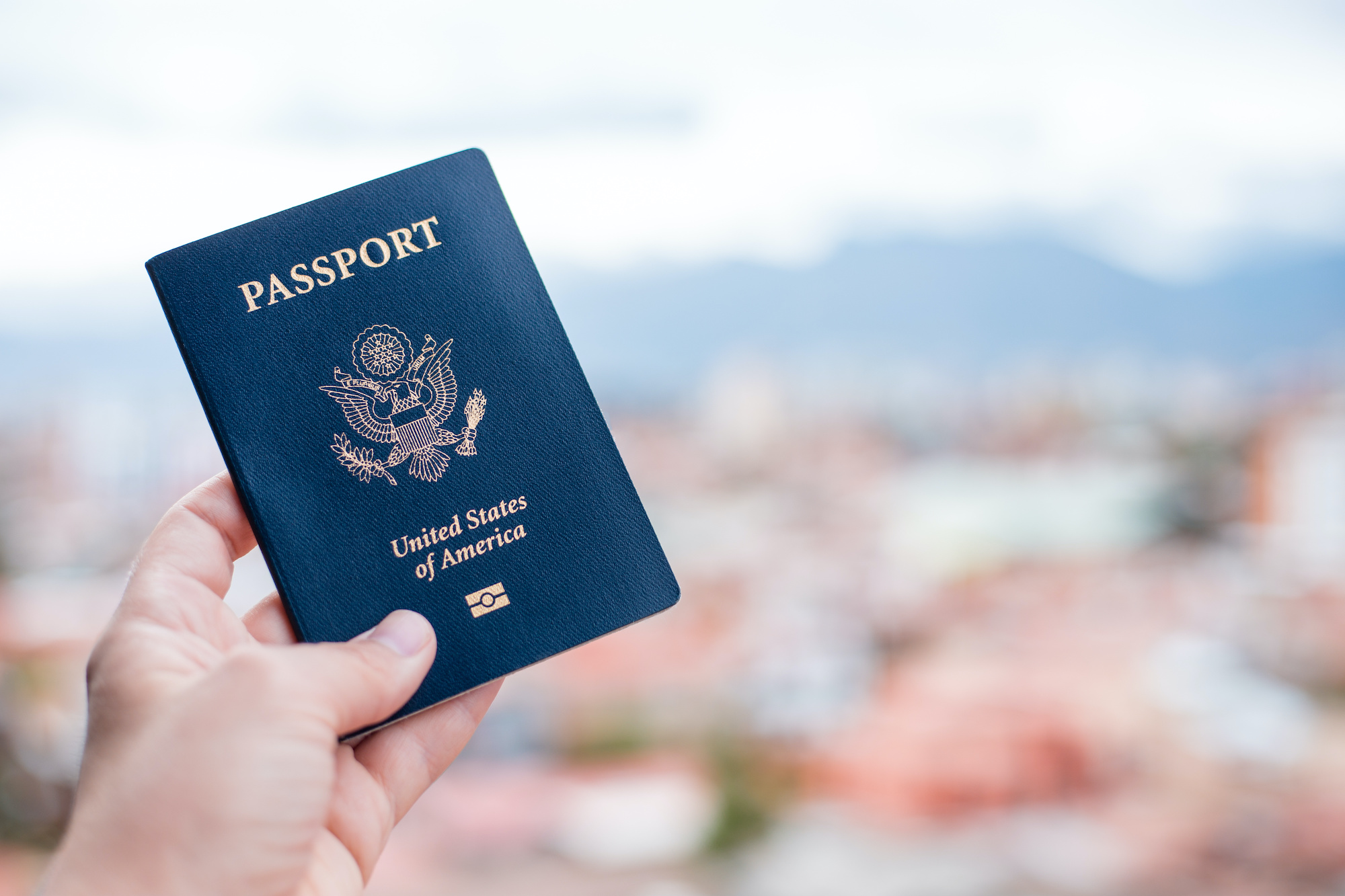A felony conviction is not something to be taken lightly. Whether you or someone you know is re-entering society after a felony charge and time served, there is a lot that may be affected.
Felony convictions in the United States can lead to a number of restrictions. After committing a crime, convicted felons are often restricted from having certain types of licenses, jobs, or even forms of identification. The rules covering these restrictions are relatively unknown to the general population as they do not often need to know about them.
However, some may wonder: can you obtain a U.S. passport with a felony record?
The answer is both “yes” and “no.” To understand whether or not you can get a U.S. passport after being convicted of a felony, you need to look more closely at the U.S. passport regulations.
U.S Passports and Felonies: What are the Rules?
The question is relatively simple: can you get a passport with a felony?
For most people with a felony conviction, the answer is yes. You can still get a passport with a felony conviction as long as it does not fall under a restricted category.
First, let’s define what a felony is. While felonies were originally used to identify crimes that violated the highest moral standards of society, that is no longer the case. These days, most felonies are defined by the amount of prison time given for the crime. Crimes ranging from murder to drug crimes that give more than one year in prison are typically considered felonies.
Generally, a felony conviction doesn’t disqualify you from getting a U.S. passport. U.S passports are a type of identification used for international travel.
Who is Restricted?
Felons that committed crimes, such as drug trafficking, while crossing international borders are not allowed to hold a U.S. passport. If they currently hold a passport, it will be revoked after being convicted of this type of felony.
Additionally, it is possible for passport applicants who have committed multiple drug-related charges at the state or federal level to be denied. Individuals convicted of first-time possession cannot have their application denied for this reason.
Other Reasons for Application Rejection
Anyone who is awaiting trial for a felony charge or has a felony warrant on their name will have their passport application denied. Additionally, those in jail or on parole for drug charges will have their applications denied.
There are a few other obstacles that can cause a passport application to be denied:
- If you owe more than $2,500 in child support
- If you owe money on certain types of loans to the government
- If you have a parole order that does not allow you to leave the country
- If you have a court or probation order that does not let you leave the country
If you have questions about your or a family member’s passport eligibility, the best thing to do is contact a State Department representative for more detailed information.
Other Examples of Restrictions on a Felony Record
Rules about what felons can and cannot do can be complex, and it will often take some research to be sure about what is permitted. There are some common restrictions. However, that tend to affect the lifestyles of those with a felony record.
As with passports, many restrictions only apply to certain types of felony records, so that is another factor to keep in mind while learning more about these rules. Let’s cover a few other common types of restrictions seen for those with felony records.
Life Insurance
Getting affordable and high-quality life insurance for felons can be difficult. While misdemeanors and other lower-level crimes do not typically affect insurance premiums, that is not the case for felony convictions.
Convicted felons may find it hard to get a life insurance policy. Often, you have to wait until at least one year after your probation period ends to be eligible for a policy. Even then, rates can be very high. However, most insurance companies review ex-felon applications on a case-by-case basis, so there is no certain answer.
If currently awaiting trial for a felony conviction or serving your probation, it is best to wait to apply for life insurance until things are resolved so that you can provide life insurance companies with a clear and accurate timeline of events.
Green Cards
If you are not a U.S. citizen and are hoping to become one or to immigrate to the U.S., being accused and/or convicted of a felony will make that very difficult. Green card holders that have a felony on their record may not be able to renew their green card. However, they should still try to work out some type of agreement to retain their green card status.
Certain types of crimes by green card holders can even lead to deportation. For this reason, there are not many convicted felons holding green cards in the U.S.
Gun Ownership

Most states have rules about gun ownership that limit who can and cannot own guns. In many cases, these regulations restrict convicted felons accused of violent or drug-related crimes from owning guns.
To find out the rules about felon gun ownership in your state, you will need to review your state’s specific laws.
Editor’s note: Under U.S. Federal law, felons are never permitted to own firearms. While individual states may decide to permit ownership, federal authorities (border guards, those on federal lands such as parks) may still arrest felons for firearm possession and federal prosecutors may charge felons for this violation.
Voting Rights
In some states in the U.S., individuals convicted of a felon cannot vote while incarcerated and for a set period after they leave prison. Some states even try to prevent felons from voting permanently, but this is becoming less common as voting rights are altered each year in the U.S.
Felony Convictions: A Life-Changing Affair
A felony conviction is not something to be taken lightly. Whether you or someone you know is re-entering society after a felony charge and time served, there is a lot that may be affected. Since felonies are serious crimes, the related punishments for those crimes are quite serious as well. No matter how long it has been since a felony crime, it is likely to have effects for life.


Join the conversation!